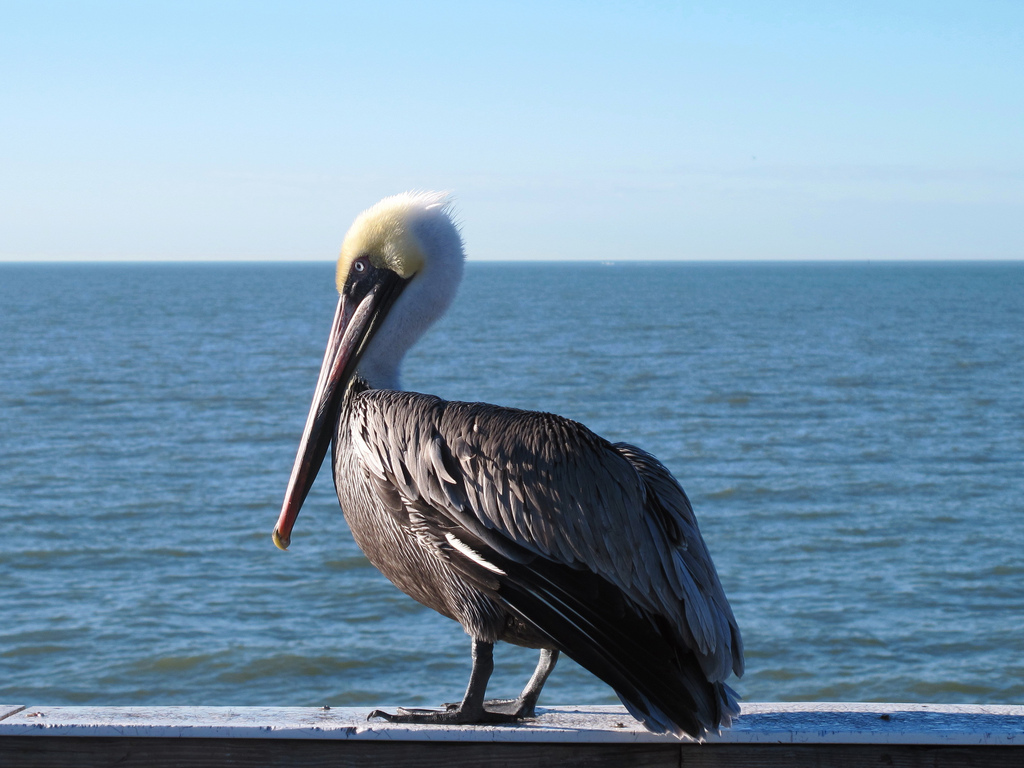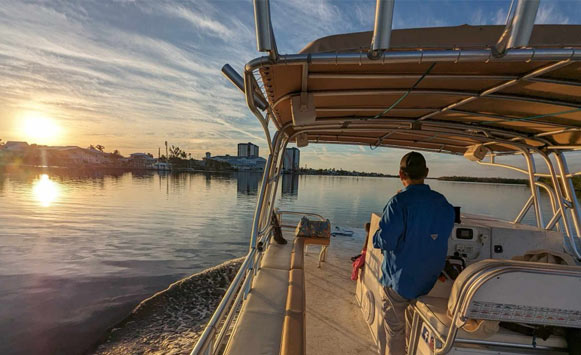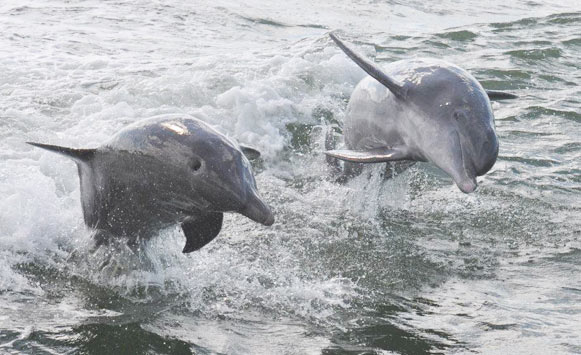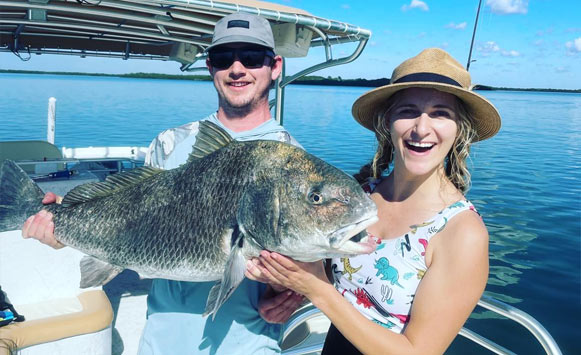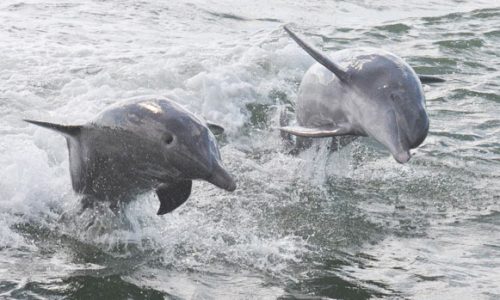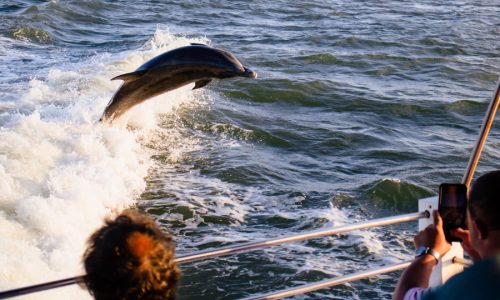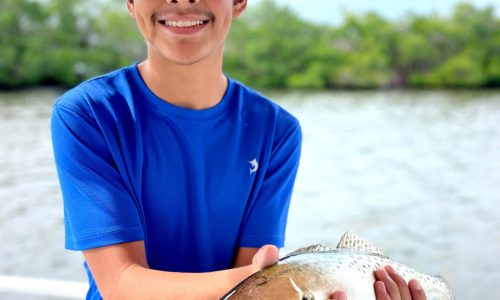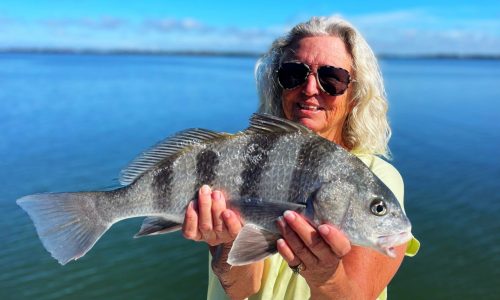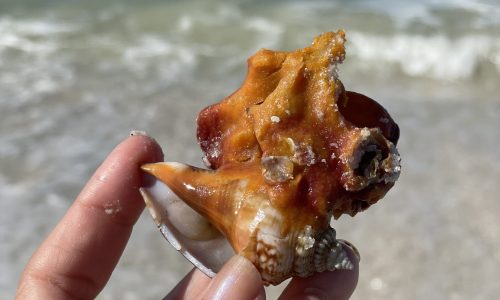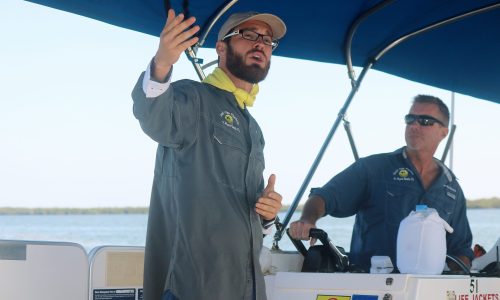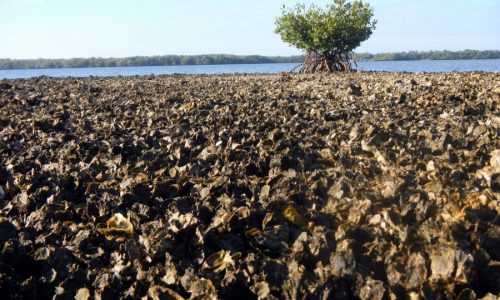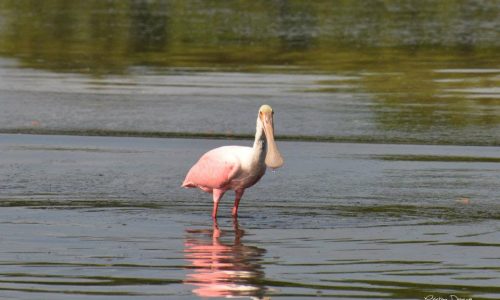Whichever fantastic tour you take with us you will, no doubt, run into our wonderful friend the Pelican! They are found everywhere you can go on our coastline and in no time, you become acquainted with them. You see them flying in formation off for a day of hunting in the early morning hours to almost any area that anglers use as a haunt, floating in the gentle Gulf waters, on the beaches and also hovering around fishing boats anticipating leftovers. Finally you see them at sunset as they fly off in formation or single file to find a roosting place safe from all danger.
In Southwest Florida, The Brown Pelican is the most commonly seen and although they are the smallest of the pelican species they can grow to 54 inches in length, weigh up to 12 pounds and have a wingspan of up to 7 feet, with a bill that can be up to 14 inches in length. Typical size though is about 40 inches and 5-8 pounds.
Their diving technique is really quite thrilling as they descend straight down from great heights kingfisher style, bill first into the water to take their prey. They will feed on all types of smaller fish swimming in schools and can eat up to 4 pounds of fish a day. They do not target a single large fish but instead a school of smaller fishes. Their bills can hold about 3 gallons of fish and water, tucking their head to drain the water out before swallowing their catch. PLEASE NEVER GIVE A PELICAN YOUR LEFTOVER FISH CARCASSES! We see anglers and beachgoers do this all the time for either entertainment or because they think they are doing the pelican a favor. A pelican’s bill pouch is not designed to carry a fish carcass. The sharp bones of the carcass gets hung up in the pouch and result in the pelicans death. Unfortunately, the pelican is not able to know that they can not eat the carcass so they scoop it up and fly away only to choke later and/or be unable to expand their pouches any longer.
Nesting Season is generally in March and April. The colony will nest in mangrove trees, building nests out of branches and twigs and typically have 2-3 eggs per clutch. The juveniles can receive a whopping 150 pounds of regurgitated food from the parents and are full grown in 3 months!
As very sensitive creatures they can become highly stressed as predators or humans come into contact with their nests and they will abandon it if they are too stressed. So please keep your distance if you see pelicans, or any bird really, at rest either on the beach or on the islands. It is our duty to protect these beautiful birds that call this area home.
So enjoy these very fun and amusing sea birds in our area as you take your Good Time Charter Tour!

